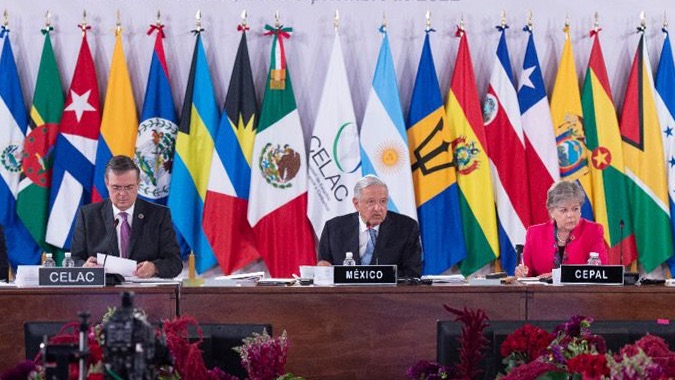South American Indigenous Communities: A Legacy of Resilience, A Future of Empowerment
The journey of South American Indigenous communities towards securing land rights, achieving autonomy, and preserving their vibrant cultures is a testament to their enduring resilience. For centuries, these communities have faced immense challenges, from historical injustices to contemporary threats, yet their unwavering commitment to self-determination continues to inspire. This article explores the multifaceted landscape of their struggles, celebrates their advancements, and outlines a path forward toward a more equitable and sustainable future.
The Imperative of Land Rights: The fight for secure land tenure remains central to the well-being of Indigenous communities. Generations of dispossession and land grabbing have resulted in displacement, poverty, and the erosion of cultural practices deeply intertwined with the land. Gaining legal recognition of ancestral territories is not merely a matter of property ownership; it is fundamental to their cultural survival, economic self-sufficiency, and the preservation of their unique relationship with the environment.
Environmental Stewardship and the Threat of Extractive Industries: The abundance of natural resources on Indigenous lands often makes them targets for destructive practices. Deforestation, mining, and oil exploration frequently proceed without the free, prior, and informed consent (FPIC) of the affected communities, causing irreparable environmental damage, habitat loss, and the disruption of traditional livelihoods. The adoption of sustainable resource management practices, guided by Indigenous knowledge and prioritizing community rights, is urgently needed.
Self-Governance: The Foundation of Autonomy: Indigenous communities persistently advocate for greater self-governance, asserting their right to manage their own affairs and determine their own futures. However, navigating complex legal frameworks and bureaucratic obstacles often hinders the effective exercise of these fundamental rights. Empowering Indigenous communities to lead their own development initiatives, manage resources sustainably, and participate meaningfully in decision-making processes is paramount for achieving true autonomy and self-determination.
Combating Systemic Inequality and Promoting Social Justice: Many Indigenous communities in South America face staggering levels of poverty and inequality, often exacerbated by limited access to essential services like education, healthcare, and economic opportunities. Addressing these systemic injustices requires a multi-pronged approach, including targeted investments in infrastructure, equitable resource distribution, and the creation of economic opportunities that respect and leverage Indigenous knowledge and skills.
Cultural Revitalization: Protecting a Rich Tapestry of Heritage: The preservation of Indigenous languages and cultures is crucial for maintaining identity, transmitting knowledge across generations, and enriching the global cultural landscape. Initiatives promoting language revitalization, cultural education programs, and the documentation of traditional practices are essential investments in the future of these vibrant heritages.
Empowering Indigenous Women: Agents of Change: Gender inequality persists within many Indigenous communities, limiting women's participation in decision-making and perpetuating cycles of disadvantage. Empowering Indigenous women through leadership development programs, promoting their full participation in community governance, and ensuring their equal access to resources are vital for achieving gender equity and fostering community well-being.
Progress and Pathways to a Sustainable Future: While significant challenges remain, there are encouraging signs of progress. Land restitution efforts, while often slow and under-resourced, are slowly but surely redressing past injustices. Indigenous-led conservation initiatives demonstrate their effectiveness as stewards of their ancestral lands, highlighting the invaluable contribution of traditional ecological knowledge to global conservation efforts.
International Collaboration: A Shared Responsibility: International cooperation is crucial in supporting the ongoing struggles of Indigenous communities. Sharing best practices, fostering collaborative partnerships, and advocating for policy reforms at regional and global levels are essential steps towards achieving lasting positive change. Strengthening international legal frameworks that protect Indigenous rights is also critical.
Investing in Education and Youth: Leaders of Tomorrow: Integrating Indigenous knowledge systems into formal education strengthens intercultural understanding and promotes sustainable development. Investing in education and leadership development programs for Indigenous youth is essential for ensuring the continuity of their cultures and empowering the next generation of leaders.
Strengthening Legal Frameworks and Rights Protection: Robust legal frameworks are fundamental to protecting Indigenous rights, including land rights, self-governance, and cultural preservation. Enacting and rigorously enforcing comprehensive legislation that upholds these rights is a prerequisite for achieving meaningful and enduring progress.
Building Bridges: Solidarity and Collective Action: A crucial factor in achieving success is building solidarity among various stakeholders: Indigenous communities, governments, civil society organizations, and international actors. Collaborative efforts, guided by a shared commitment to Indigenous rights, are essential for forging a more inclusive and equitable future. The journey towards empowerment requires a collective commitment to ensuring that Indigenous voices are heard, their rights are respected, and their cultures are celebrated. The path forward is one of collective responsibility and sustained engagement.
This ongoing conversation necessitates continued dialogue and engagement. What strategies can further enhance the empowerment of Indigenous communities? How can we collectively work towards greater unity and progress in achieving a just and sustainable future for all?





No comments yet. Be the first to share your thoughts!